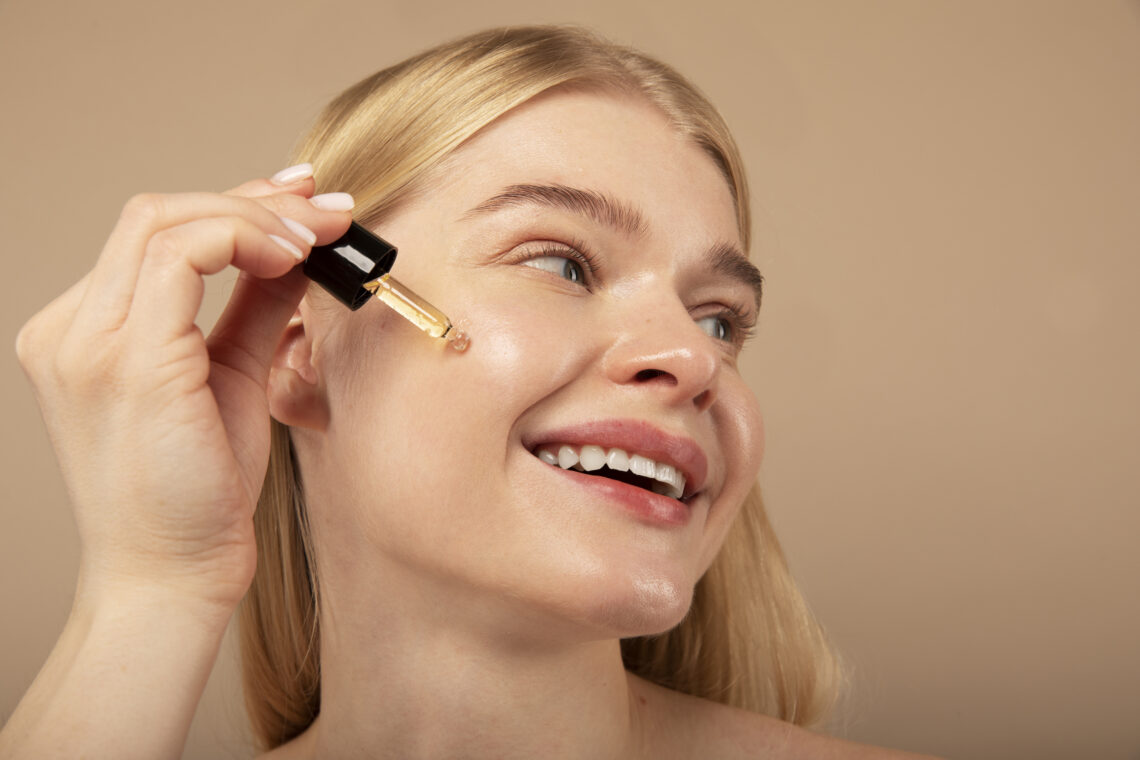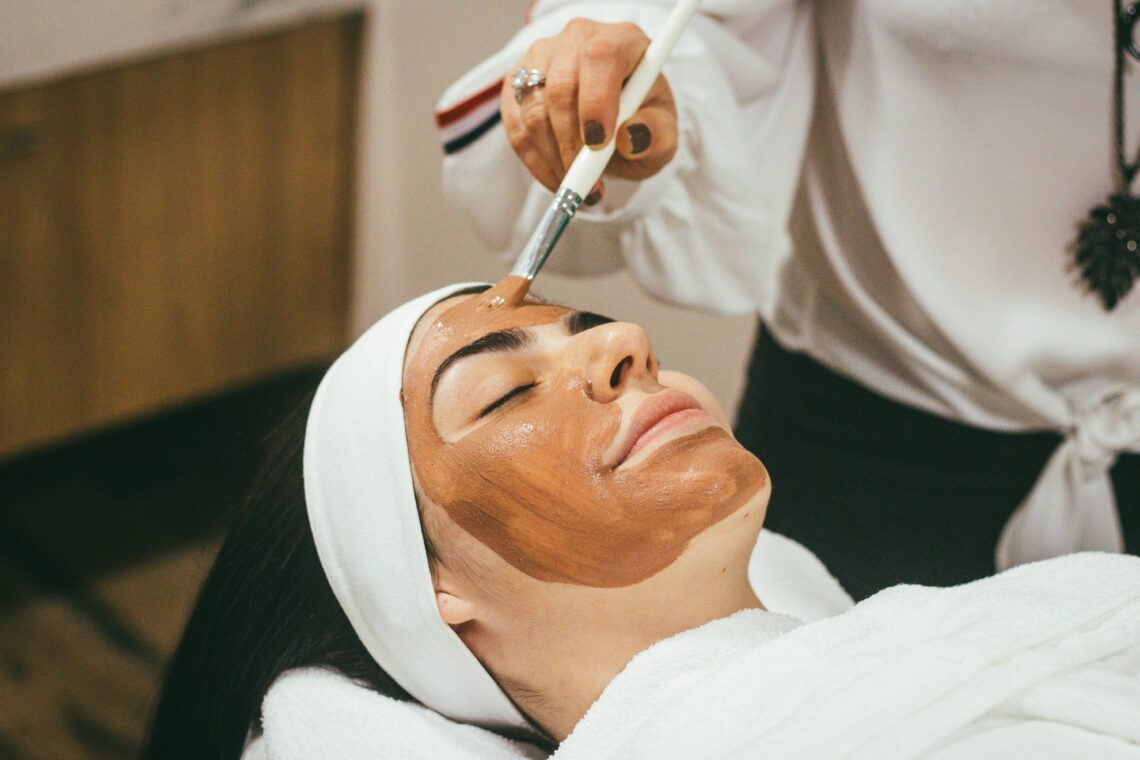Aging a natural process as well as a fact of life — but premature skin aging doesn’t have to be. Wrinkles, fine lines, dullness, and sunspots often appear earlier than they should due to preventable environmental stress. Two ingredients have emerged as scientifically backed, dermatologist-approved powerhouses in the fight against visible aging: Vitamin C and SPF (sun protection factor, also known as sunscreen).
In this guide, we’ll break down why these two ingredients are essential in any skincare routine and how to use them together every morning in order to slow the aging process, protect your skin and preserve skin’s youthfulness to make your skin radiant and glow again.
What Causes Skin to Age – And How to Prevent It?
Before diving into the benefits of Vitamin C and SPF, let’s understand what causes skin aging. Skin aging is a complex biological process, influenced by both internal and external factors. While we can’t control natural aging, external factors like UV exposure, pollution, and oxidative stress are the main causes of visible skin aging. The most common signs include wrinkles, fine lines, hyperpigmentation (such as dark spots), loss of elasticity, and uneven skin tone.
Among all these, sun exposure is the leading factor—responsible for up to 80% of visible aging. That’s why sun protection and antioxidants are the most effective defense.
Vitamin C: The Brightening, Anti-Aging Antioxidant
Vitamin C (L-ascorbic acid) is a powerful antioxidant that occurs naturally in healthy skin. However, as we age and face daily environmental stressors, our natural Vitamin C levels decline. Topical application helps replenish it — and the benefits are undeniable.
Benefits of Vitamin C for Anti-Aging
- Neutralises Free Radicals:
Environmental aggressors like pollution and UV rays produce unstable molecules (free radicals) that damage skin. Vitamin C neutralizes them before they can do harm. - Boosts Collagen Production:
Collagen gives skin its firmness and elasticity. Vitamin C stimulates collagen synthesis, helping reduce fine lines and firm sagging skin. - Brightens Skin Tone:
It fades hyperpigmentation, acne scars, and sun spots by suppressing melanin production, promoting a more even, radiant complexion. - Reduces Inflammation:
Its anti-inflammatory properties calm redness, irritation, and reactive skin.
Dermatology Consensus How to Use Vitamin C
- Apply a Vitamin C serum in the morning after cleansing and before moisturising.
- Concentrations between 10%–20% are effective for most skin types.
- Store in a dark, cool place, as Vitamin C is sensitive to light and air.
Why Apply Vitamin C in the Morning
You might wonder: If Vitamin C is sensitive to light and air, why is it used in the morning?
Here is the answer — once applied to skin, Vitamin C is absorbed and remains effective, even in sunlight. The reason it’s stored in dark bottles is to prevent degradation before it’s applied. On your skin, it’s stable enough to deliver its benefits — especially when paired with SPF.
SPF: Your Skin’s Daily Defense Shield
While Vitamin C protects your skin from free radicals, SPF protects from UV rays. SPF stands for Sun Protection Factor and refers to a sunscreen’s ability to block UV rays – the number one cause of skin aging and even skin cancer.
Types of UV Rays
- UVA Rays: Penetrate deeply and cause premature aging.
- UVB Rays: Damage the skin’s surface and cause sunburns which may also increase skin cancer risk.
Benefits of Daily SPF Use
- Prevents Wrinkles and Fine Lines
UV rays break down collagen. Daily sunscreen use helps prevent this degradation and preserves skin structure. - Reduces Hyperpigmentation
It protects against sun spots, melasma, and post-acne dark marks. - Protects Skin from Skin Cancer
Long-term exposure increases cancer risk. Daily SPF significantly reduces this threat. - Prevents Loss of Skin Elasticity
Regular use maintains your skin’s firmness and slows aging.
Dermatology Consensus on How to Use SPF
- Apply broad-spectrum SPF 30 or higher every morning as the last step in your routine.
- Use an adequate amount of sunscreen for face and neck.
- Reapply every 2 hours when outdoors or after sweating/swimming.
Why Vitamin C and SPF Work Better Together
Vitamin C boosts the effectiveness of your sunscreen by reducing oxidative stress caused by UV rays. In addition, sunscreen protects the Vitamin C in your skin, allowing it to work longer and more effectively. In essence, Vitamin C repairs while SPF protects — creating a complete anti-aging defense system for your skin.
Daily Routine: How to Layer Vitamin C and SPF Properly
To maximise results, follow the following tips for morning skincare routine:
- Cleanser: Start with a gentle facial cleanser to remove impurities and dirts.
- Toner: Use to balance pH levels and prep the skin for following skincare products to absorb.
- Vitamin C Serum: Apply a few drops evenly over full face and neck and let it absorb for 1–2 minutes.
- Moisturiser: Use lightweight moisturiser to lock in hydration.
- SPF: Finish with a broad-spectrum sunscreen (SPF 30 or higher).
Pro tip: Avoid combining Vitamin C with niacinamide or benzoyl peroxide in the same routine unless your skin tolerates it well.
What to Look for in Quality Products
Vitamin C Serum
- Contains L-ascorbic acid (most effective form)
- Packaged in dark, air-tight bottles to prevent oxidation
- Ideally combined with Vitamin E and Ferulic Acid for enhanced stability
SPF (Sunscreen)
- Broad-spectrum (UVA + UVB)
- Non-comedogenic or non-acnegenic and lightweight for daily use
- Choose between chemical (e.g., avobenzone) or mineral (e.g., zinc oxide) based on your skin type
Common FAQ
Do I need to apply SPF on cloudy days?
UV rays can penetrate clouds and windows. So, daily SPF is essential regardless of the weather.
Can I only use sunscreen when I am at the beach?
UV exposure happens during everyday activities—walking, driving, even sitting by a window. Which means, no matter where you are, it is crucial to wear sunscreen to protect your skin.
Does Vitamin C make my skin peel?
Peeling often occurs with overly strong formulas or incorrect layering. Start with a lower concentration and patch test before you apply the the Vitamin C serum on the whole face.
Conclusion
Take action today — choose a quality Vitamin C serum and never skip your SPF. Consistency is the real skincare secret.
In a market flooded with skincare trends and 10-step routines, Vitamin C and SPF remain the gold standard for fighting premature aging and protecting your skin in a long-term. These two are the science-backed, dermatologist-approved, and easy to integrate into your daily skincare routine. If you’re determine to maintain healthy, youthful skin, start with these two essentials.




